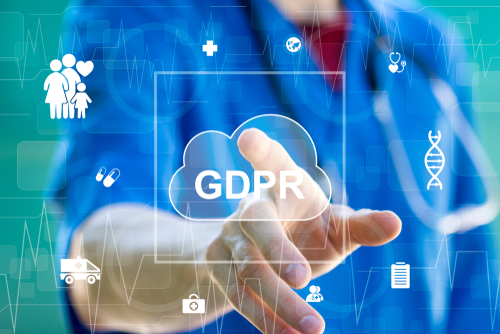How GDPR Compliance Can Build Customer Trust and Boost Brand Image
There compliance with the General Data Protection Regulation (GDPR) is not only a legal obligation for companies operating in the European Union, but also a strategic opportunity to build customer trust and improve brand image. By adopting robust and transparent data protection practices, companies can demonstrate their commitment to the privacy and security of their customers' personal information. This article explores how the GDPR compliance can improve customer loyalty, and includes real-life examples of brands that have benefited from this approach.

Blog Plan
Transparency and Accountability
Transparency is a fundamental principle of the GDPRCompanies must clearly inform customers about how their data is collected, used, stored, and protected. This transparency allows customers to understand the company's data management practices, which builds trust. By being transparent and accountable, companies demonstrate that they have nothing to hide and that they respect individual rights.
Data Security
There GDPR compliance requires businesses to implement appropriate security measures to protect personal data from unauthorized access, breaches, and loss. Customers are increasingly concerned about the security of their personal information. By adopting strong security practices, businesses can reassure their customers and show them that they take data protection seriously.
Respect for Individual Rights
THE GDPR grants individuals several rights regarding their personal data, such as the right to access, rectification, erasure, and the right to data portability. By respecting and facilitating the exercise of these rights, companies demonstrate their commitment to protecting their customers' privacy. This helps strengthen the customer trust, because they know they can control their personal information and that the company respects their wishes.
Data Breach Prevention
Data breaches can have devastating consequences for a company's reputation. complying with GDPR requirements, companies reduce the risk of data breaches and, consequently, the negative impacts on their brand image. Customers are more likely to trust a company that demonstrates its ability to effectively protect their information.
Improving Brand Image
Competitive Differentiation
In an increasingly data protection-driven market, the GDPR compliance can serve as a competitive differentiator. Companies that comply with the GDPR's high standards position themselves as leaders in privacy protection. This can attract customers who are concerned about the security of their data and prefer to do business with responsible and ethical companies.
Customer Loyalty
There customer trust is a key driver of customer loyalty. Companies that comply with GDPR principles and protect customer data are more likely to retain their customers. Loyal customers are not only more likely to continue using the company's products and services, but they are also more likely to recommend the company to others, contributing to organic growth.
Strengthening Reputation
A solid reputation is a valuable asset for any business. By respecting the GDPR requirements, companies strengthen their reputation as responsible and trustworthy organizations. This reputation can attract not only customers, but also business partners, investors, and talent.
Commitment to Ethics and Social Responsibility
There GDPR compliance is often perceived as a commitment to ethics and social responsibility. Companies that adopt robust data protection practices demonstrate that they care about the well-being of their customers and society as a whole. This commitment can enhance brand image and attract like-minded customers and partners.
Concrete Examples of Brands Having Benefited from GDPR Compliance
Microsoft
Microsoft is an example of a large company that has leveraged GDPR compliance to build customer trust and enhance its brand image. By adopting rigorous data protection practices and highlighting its GDPR compliance, Microsoft has successfully positioned itself as a leader in data security and privacy. This approach has not only built customer trust but also helped attract new customers who are concerned about protecting their data.
Apple
Apple is another company that has used GDPR compliance as a competitive differentiation tool. Apple has always emphasized the privacy of its users' data, and GDPR compliance has strengthened this position. By clearly communicating its data protection practices and respecting user rights, Apple has strengthened customer loyalty and enhanced its brand image as an ethical and responsible company.
Shopify
Shopify, an e-commerce platform, has also benefited from GDPR compliance. By implementing robust data protection measures and offering compliance tools to its users, Shopify has built trust among businesses using its platform. This approach has not only improved customer satisfaction but also attracted new users seeking a secure and regulatory-compliant e-commerce solution.
Conclusion
There compliance with GDPR is much more than just a legal obligation, it is a strategic opportunity for build customer trust and improve brand imageBy adopting transparent, secure data protection practices that respect individual rights, companies can position themselves as leaders in data privacy and security. Concrete examples from large companies show that the GDPR compliance can not only prevent costly penalties, but also improve customer loyalty, strengthen the company's reputation, and attract new customers and partners. For businesses of all sizes, investing in GDPR compliance is a smart choice that offers long-term benefits in terms oftrust and brand image.
Frequently Asked Questions
The GDPR (General Data Protection Regulation) is a European law that aims to protect citizens' personal data. It imposes strict rules on businesses regarding data collection, processing, and protection. Complying with the GDPR is crucial to avoid fines and build customer trust by demonstrating that you respect their privacy.
GDPR compliance assures customers that their data is protected and used transparently. This creates a sense of security and trust, as customers are more likely to share their information with responsible companies. By ensuring data privacy and security, you build a lasting relationship of trust.
A GDPR-compliant company demonstrates its commitment to data protection, which enhances its brand image. This can also be a competitive advantage, as customers prefer to interact with companies that respect their rights. A transparent company that respects personal data is perceived as more ethical and professional.
To be compliant, you must audit the data you collect, obtain user consent, and implement security measures to protect that data. Additionally, you must inform users of their rights (access, deletion, etc.) and ensure that all data processing processes comply with GDPR standards.








